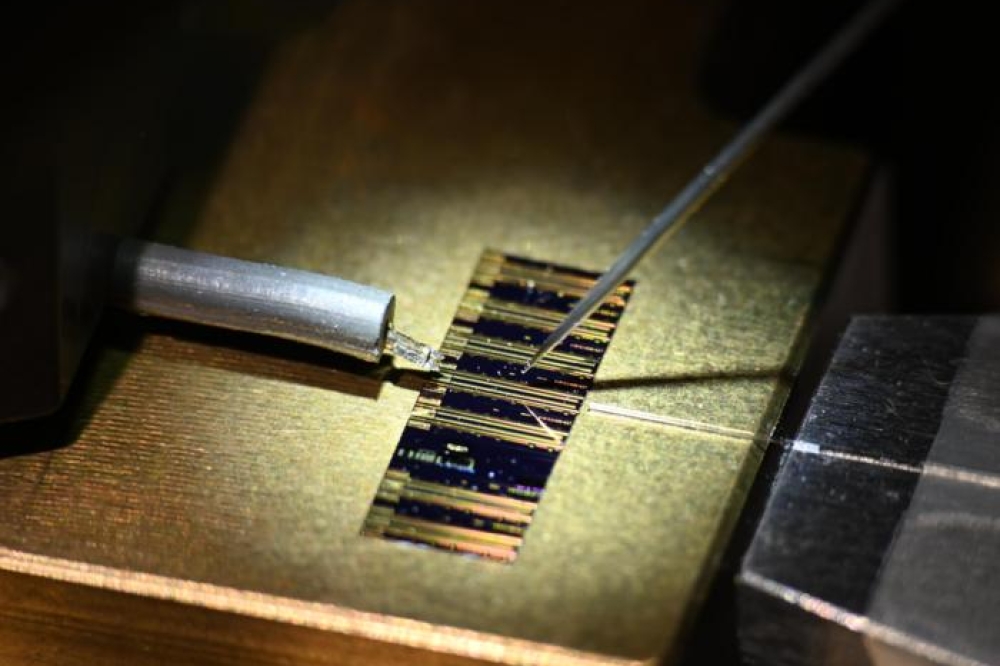News Article
Meaglow develops hollow cathode plasma source
Hollow cathode plasma source could reduce oxygen contamination
Meaglow has announced a breakthrough in semiconductor production. As computer chips become smaller and smaller, advanced production techniques, such as Atomic Layer Deposition (ALD) have become more important for depositing thin layers of material. Unfortunately the ALD of some materials has been prone to contamination from the plasma sources used.
Meaglow Ltd has developed a hollow cathode plasma source which has reduced oxygen contamination by orders of magnitude, allowing the reproducible deposition of semiconductor materials with improved quality.
The breakthrough has been shown in a recent publication of oxygen reduction figures for the hollow cathode plasma source supplied last year to the group of Professor Necmi Biyikli, of the Institute of Materials Science and Nanotechnology, at Bilkent University in Turkey.
The plasma source was used to upgrade their existing Atomic Layer Deposition (ALD) system by replacing an inductively coupled plasma source. The publication in the Journal of Materials Chemistry C (J. Mater. Chem. C 2 (2014) 2123) shows a reduction in oxygen content of orders of magnitude compared to previous results. There is also a marked improvement in material quality. These results render the older inductively coupled plasma sources obsolete for many applications.
Meaglow is seeking other customers interested in improving the material quality of their ALD and other plasma grown nitride layers. The hollow cathode plasma technology is also scalable to large deposition areas. The Plasma source can be used to retrofit existing systems or can be integrated with equipment manufacturers. It can also be utilized in a number of different applications including MBE, and LPMOCVD among others.
Meaglow Ltd has developed a hollow cathode plasma source which has reduced oxygen contamination by orders of magnitude, allowing the reproducible deposition of semiconductor materials with improved quality.
The breakthrough has been shown in a recent publication of oxygen reduction figures for the hollow cathode plasma source supplied last year to the group of Professor Necmi Biyikli, of the Institute of Materials Science and Nanotechnology, at Bilkent University in Turkey.
The plasma source was used to upgrade their existing Atomic Layer Deposition (ALD) system by replacing an inductively coupled plasma source. The publication in the Journal of Materials Chemistry C (J. Mater. Chem. C 2 (2014) 2123) shows a reduction in oxygen content of orders of magnitude compared to previous results. There is also a marked improvement in material quality. These results render the older inductively coupled plasma sources obsolete for many applications.
Meaglow is seeking other customers interested in improving the material quality of their ALD and other plasma grown nitride layers. The hollow cathode plasma technology is also scalable to large deposition areas. The Plasma source can be used to retrofit existing systems or can be integrated with equipment manufacturers. It can also be utilized in a number of different applications including MBE, and LPMOCVD among others.































